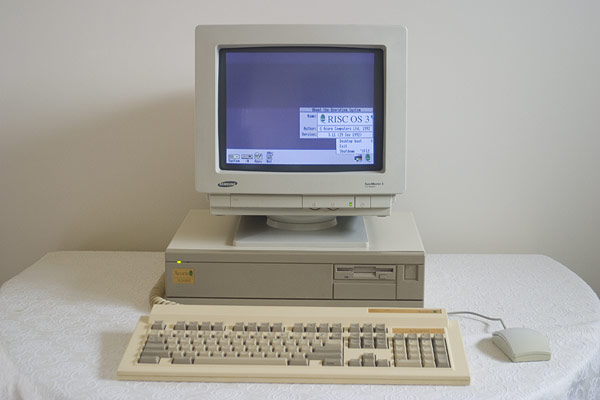As far as I could find, the only socketed ARM (Micro-)ATX motherboard currently on the market with PCIe slots and standard RAM slots seems to be the Asrock ALTRAD8UD-1L2T. This motherboard takes Ampere Altra CPUs in an LGA 4926 socket, which third-party CPU cooler manufacturers such as Noctua sell coolers for. So this could form the basis of a traditional modular home-built desktop PC, in the same vein as how we've been building and upgrading our desktop PCs for decades.
Curiously, this motherboard is consistently marketed as a "server" solution. I don't see it ever being formally offered as a workstation solution, even though it can most definitely form the basis of a workstation, with support for discrete AMD and NVIDIA GPUs even. (Jeff Geerling has some YouTube videos about such as setup.)
My guess is that the reason why Ampere is steering clear of offering their CPUs for "workstation" or "desktop" use is probably because the ARM license that they have only applies to server hardware. Nuvia had a server license from ARM too, and when Qualcomm acquired Nuvia and tried to use Nuvia's IP to develop mobile and desktop CPUs, ARM revoked their license. Obviously, Ampere doesn't want to get into a similar legal battle with ARM.
But not marketing it for desktop use won't legally prevent people from actually using it as such.
Unfortunately, I can't seem to find this motherboard and CPU in Europe anywhere for a reasonable price, new or used. 🤷🏾♂️
The only somewhat affordable offers for a motherboard+cpu bundle (about $1500) are all from sellers in the US. That's unfortunate, since shipping fees and import duties would increase the costs of it substantially for buyers in Europe.
I'm seriously considering switching to a Linux-based ARM system as my daily desktop driver. That would likely be either an older M2-based Mac Mini that is supported by Asahi Linux, or an Ampere Altra CPU and motherboard, if I can finally find one in Europe for a reasonable price.
But on the other hand, given how hard ARM Holdings is making things for everyone w.r.t. licensing, maybe I should just hold out on the (boring) x86 platform a bit longer, until more mature RISC-V platforms come on the market. It's still not as mature as ARM yet, but already it's showing to be more open, what with a RISC-V motherboard for Framework Laptops already becoming available, as well as desktop solutions from SiFive and others that allow the use of discrete graphics cards.
One compelling reason to pick ARM over RISC-V would be the fact that apparently the ARM instruction set architecture has more features that allows x86 to be emulated more efficiently and with higher performance, which is nice for running games.
On the other hand, the Box64 developers (and perhaps also the FEX developers?) appear to be figuring out clever workarounds for these limitations on RISC-V, and leaving out instructions that would only be beneficial for emulating other (legacy) architectures might keep the architecture cleaner and more future-proof overall.
The Box64 developers go into this in further detail in a number of interesting blog posts:
Currently, I'm leaning towards finding a pre-owned M2 Mac Mini (that's supported by Asahi Linux) and using that as my daily driver, at least until RISC-V has gotten more mature, both as an architecture and as an ecosystem. But I'm definitely rooting for RISC-V!
If anybody knows of an alternative decent desktop Linux ARM platform that's performant and affordable, please share it!
And any leads on a good and affordable European seller of Ampere Altra CPUs and motherboards would be welcome too.
Thanks. 🙏🏽
